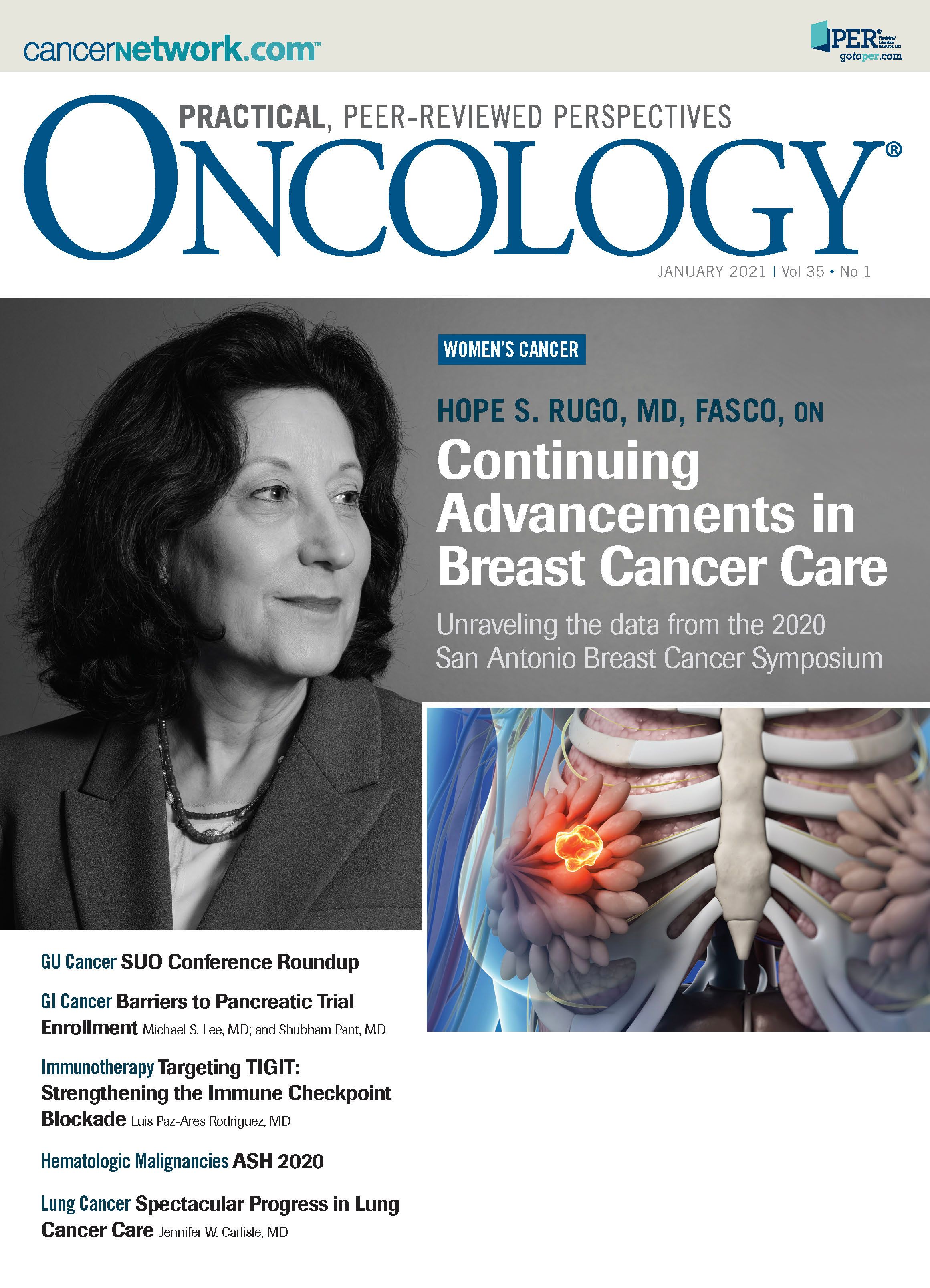Encouraging Advances in Hematologic Malignancies
In this issue of ONCOLOGY®, we highlight some of the most important posters and presentations from the 2020 American Society of Hematology Annual Meeting & Exposition.
In this issue of ONCOLOGY®, we highlight some of the most important posters and presentations from the 2020 American Society of Hematology Annual Meeting & Exposition. With encouraging follow-up data on chimeric antigen receptor T-cell therapies in both lymphoma and multiple myeloma, and promising results for bispecific antibodies and antibody-drug conjugates, clinicians have new weapons in their arsenal—and patients with relapsed/refractory hematological malignancies have a new reason to hope for better outcomes.
You will also read a review of patient-reported outcomes (PROs) of pain and related symptoms in integrative oncology practice. With pain levels being one of the primary concerns of patients with cancer, this review summarizes the most current and validated PROs to aid integrative oncology clinicians and investigators in patient care.
Also in this issue, you will find an interview with Jennifer W. Carlisle, MD, of Emory University Winship Cancer Institute. Carlisle discusses the numerous advances made for patients with lung cancer in 2020. “2020 has been remarkable,” says Carlisle. “We’ve had 10 FDA approvals; some were [for] novel treatments, and some were [for] new uses for regimens we’ve already had for NSCLC [non-small cell lung cancer]. I think that is particularly impressive amid the [coronavirus disease 2019] pandemic.”
You’ll also read an interview with Hope S. Rugo, MD, FASCO, professor of medicine and director of Breast Oncology and Clinical Trials at the University of California, San Francisco Helen Diller Family Comprehensive Cancer Center. Rugo recaps some of the important trial data discussed at the 2020 San Antonio Breast Cancer Symposium and discusses the impact those findings will have on the future treatment of patients with breast cancer. “I think the analyses of immunotherapy in the metastatic setting are already practice changing and in the next year potentially will be practice changing [in] the neoadjuvant setting as well,” she says.
Finally, you’ll read a report from the 21st Annual Meeting of the Society of Urologic Oncology, as well as expert commentary on overcoming the barriers to clinical trials for patients with pancreatic cancer.
I hope you find our journal helpful in caring for your patients through what is likely one of the most challenging times in their lives. As always, thank you for reading.
